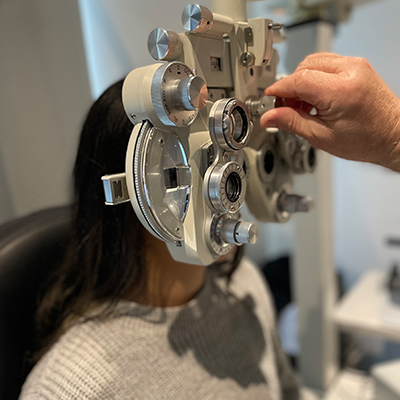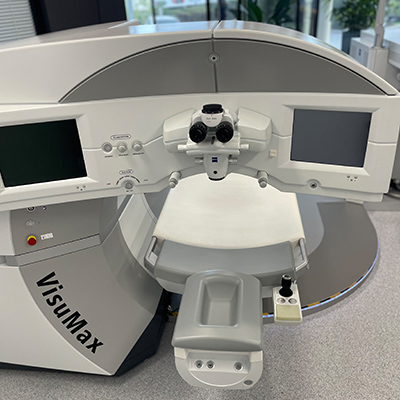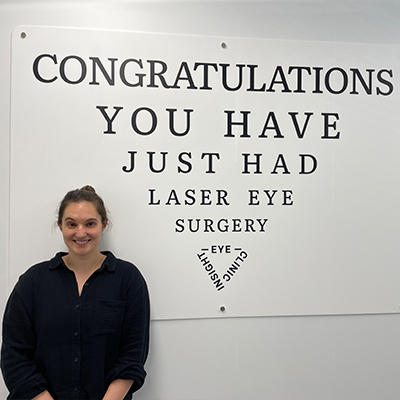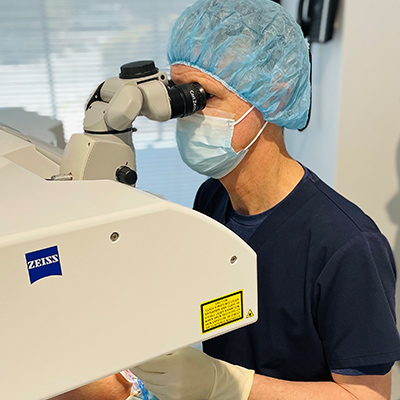Monovision Using Refractive Lens Exchange
• Monofocal intraocular lenses (IOL’s) replace the natural lens of the eye to eliminate the need for glasses.
• With this vision setup, you can be free to see the world without spectacles.
• From a distant street sign to a close-up smart phone and everything in between.
• The procedure is quick and simple and happens thousands of times every day around the world.
What is ‘Monovision’ and how does it work?
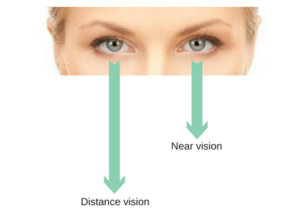
Monovision is an ocular arrangement whereby the dominant eye is utilised for distance vision and the non-dominant eye, for near vision. Together, the two eyes work in harmony to give good intermediate vision also. Approximately 20% of patients are not suitable for monovision. This is because the brain cannot adjust to the eyes doing different things and is not something we can consciously choose to change.
What happens during RLE surgery?
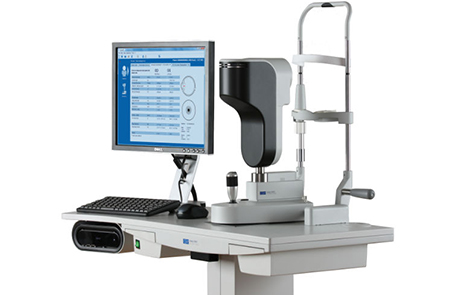
At your consultation
Dr Furness will establish the degree of refractive error present (glasses prescription) and determines which lens option would work best based on:
• tests performed
• your visual preferences
• your daily tasks and hobbies
• your current eye health and family history
What happens on the day of surgery?
RLE surgery takes only 30 minutes and your outpatient visit to Perth Eye Hospital will be approximately 3 hours. You are required to begin an antibiotic eye drop 3 days prior to your procedure and additional medicated eye drops will commence from the day of your procedure to aid in your eyes recovery and overall result. You will be advised to take these eye drops for a short period after your procedure to optimize your healing time and reduce the likelihood of post operative complications.
Aftercare
During your consultation, we will discuss your work environment and lifestyle. We will provide instruction on how to effectively use your eye drops and provide an eye drop chart that makes keeping on top of your eye drop schedule much easier.
Screen use is to be reduced for at least the first 24 hours and there are certain activities that you must refrain from during early weeks following your surgery. You will have some aftercare appointments to attend with Dr Furness to assess your progress.
Choosing the right Surgeon
 It is a common misconception that it doesn’t matter who the surgeon is as it’s the laser that does all the work. In actual fact, the lasers are responsible for approximately 10% of your visual outcome. It is important to have a surgeon with experience, a wide knowledge base and proven great outcomes.
It is a common misconception that it doesn’t matter who the surgeon is as it’s the laser that does all the work. In actual fact, the lasers are responsible for approximately 10% of your visual outcome. It is important to have a surgeon with experience, a wide knowledge base and proven great outcomes.
Dr Furness is a cataract and refractive specialist and has performed thousands of successful procedures since qualifying in 1996. Dr Furness is the founder and chief surgeon of Insight Eye Clinic which was established in 1999.
Dr Furness’ main aim is visual freedom for his patients. You will be educated to a high degree about the procedure type that is suitable for you and advised accordingly if you are suitable for more than one procedure type as to which is safest and which will provide the best post-operative result. All 3 steps of the process are imperative to an outstanding outcome.
1. Consultation
2. Surgery
3. Aftercare
Rest assured you are entrusting your vision to a world class surgeon.
